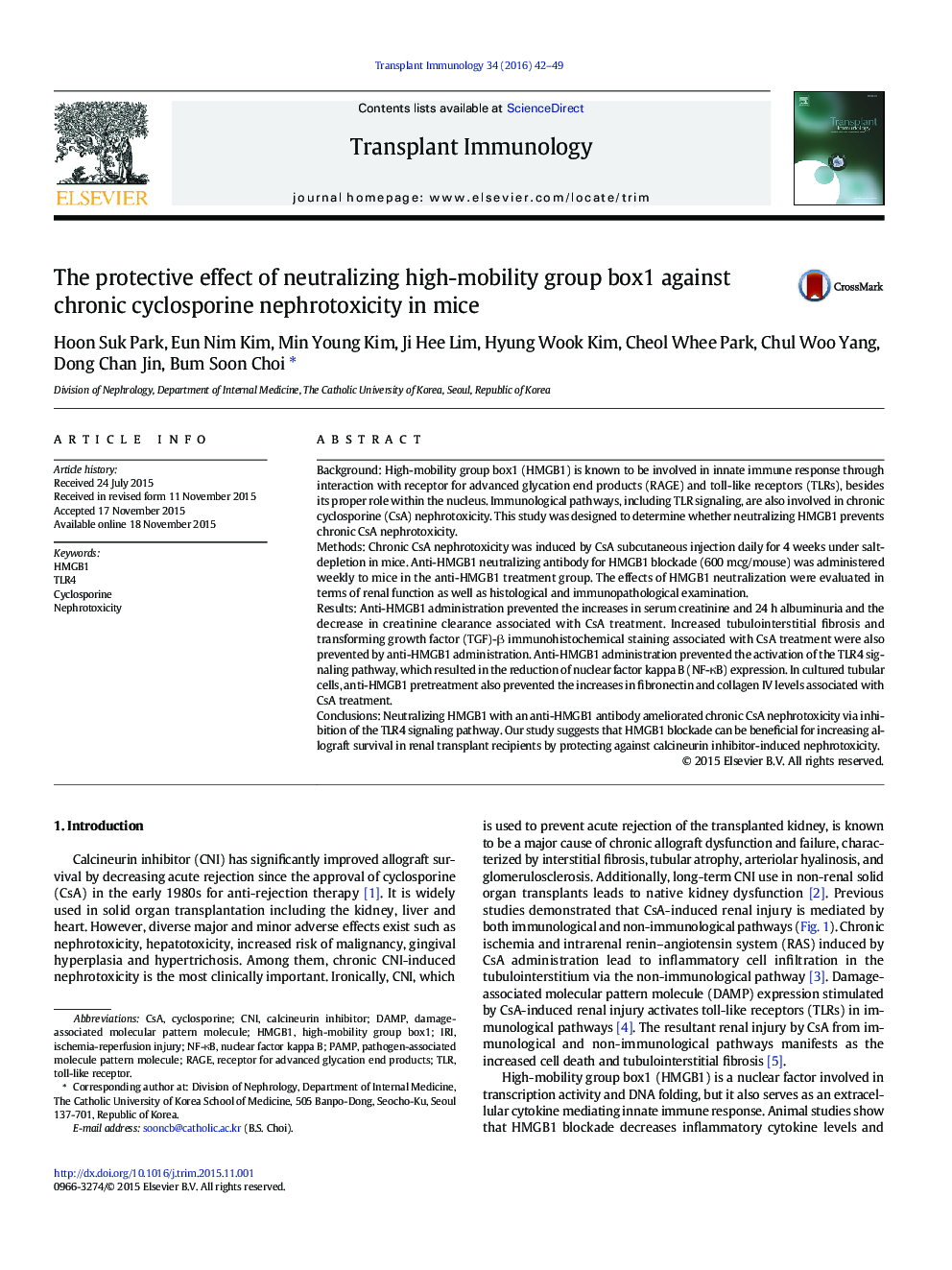| Article ID | Journal | Published Year | Pages | File Type |
|---|---|---|---|---|
| 3391993 | Transplant Immunology | 2016 | 8 Pages |
•Chronic CsA nephrotoxicity is the major cause of chronic renal allograft dysfunction.•Chronic CsA nephrotoxicity is mediated by immunologic and non-immunologic pathways.•HMGB1 is an important mediator in chronic CsA nephrotoxicity via TLR4 signaling.•HMGB1 blockade protects against chronic CsA nephrotoxicity.•HMGB1 blockade can be beneficial for increasing renal allograft survival.
Background: High-mobility group box1 (HMGB1) is known to be involved in innate immune response through interaction with receptor for advanced glycation end products (RAGE) and toll-like receptors (TLRs), besides its proper role within the nucleus. Immunological pathways, including TLR signaling, are also involved in chronic cyclosporine (CsA) nephrotoxicity. This study was designed to determine whether neutralizing HMGB1 prevents chronic CsA nephrotoxicity.Methods: Chronic CsA nephrotoxicity was induced by CsA subcutaneous injection daily for 4 weeks under salt-depletion in mice. Anti-HMGB1 neutralizing antibody for HMGB1 blockade (600 mcg/mouse) was administered weekly to mice in the anti-HMGB1 treatment group. The effects of HMGB1 neutralization were evaluated in terms of renal function as well as histological and immunopathological examination.Results: Anti-HMGB1 administration prevented the increases in serum creatinine and 24 h albuminuria and the decrease in creatinine clearance associated with CsA treatment. Increased tubulointerstitial fibrosis and transforming growth factor (TGF)-β immunohistochemical staining associated with CsA treatment were also prevented by anti-HMGB1 administration. Anti-HMGB1 administration prevented the activation of the TLR4 signaling pathway, which resulted in the reduction of nuclear factor kappa B (NF-κB) expression. In cultured tubular cells, anti-HMGB1 pretreatment also prevented the increases in fibronectin and collagen IV levels associated with CsA treatment.Conclusions: Neutralizing HMGB1 with an anti-HMGB1 antibody ameliorated chronic CsA nephrotoxicity via inhibition of the TLR4 signaling pathway. Our study suggests that HMGB1 blockade can be beneficial for increasing allograft survival in renal transplant recipients by protecting against calcineurin inhibitor-induced nephrotoxicity.
